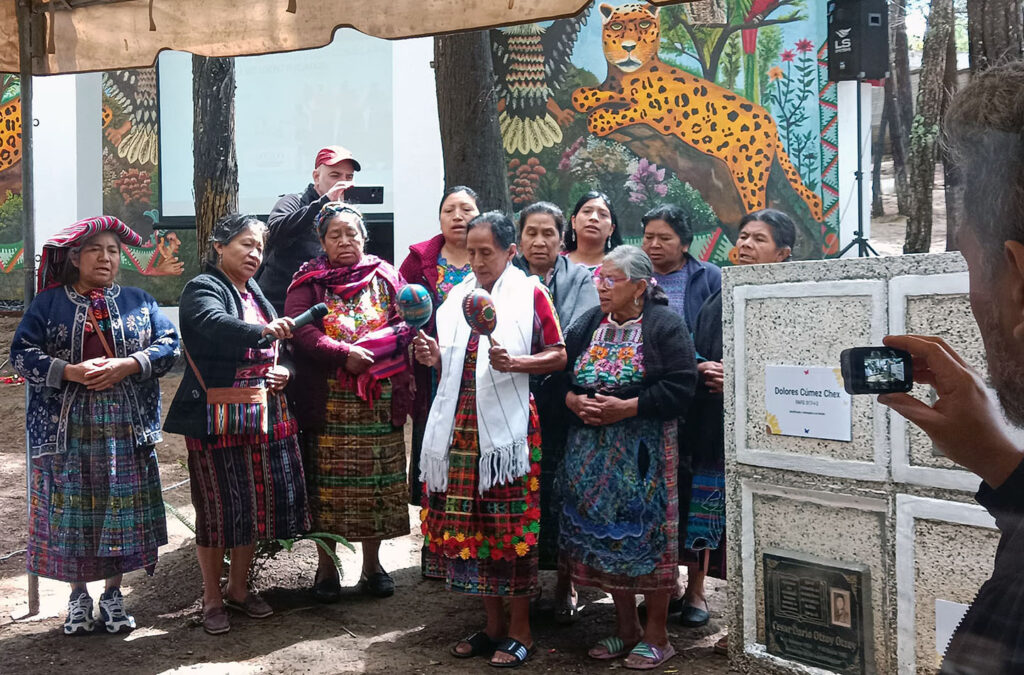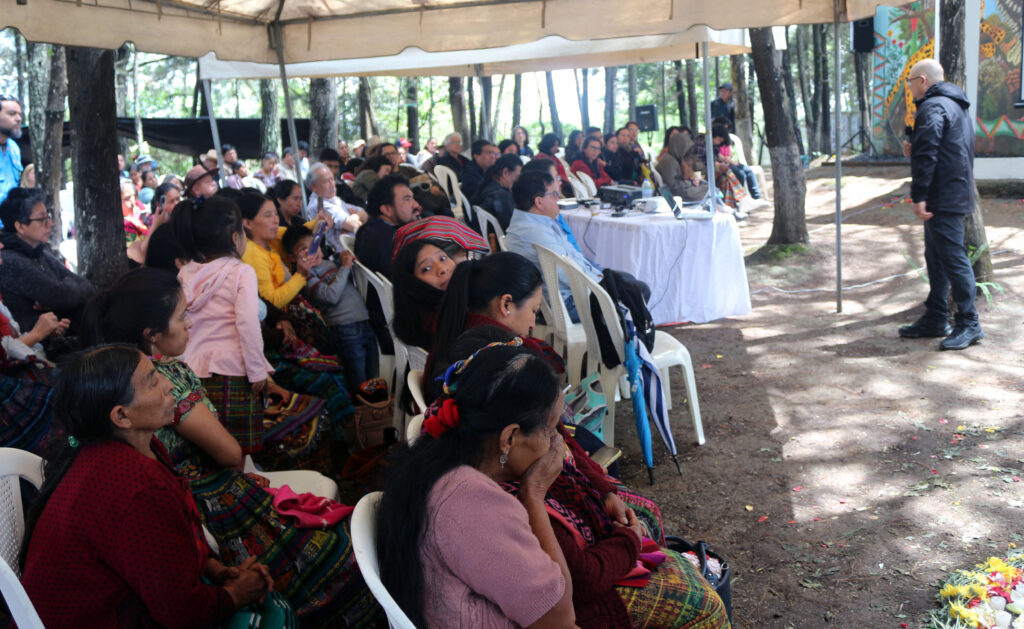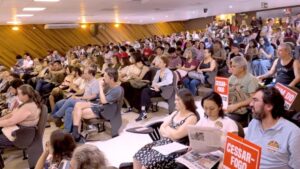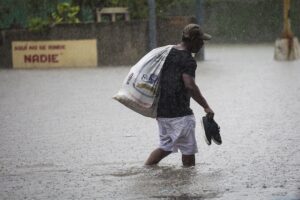
Published 06/29/2024 10:44 | Edited 06/29/2024 11:00
The “National Day against Enforced Disappearance”, June 21st, is full of symbolism in Guatemala. In addition to the kidnapping of 27 union members at the headquarters of the National Workers’ Central, in 1980, and the more than 40 thousand officially disappeared – five thousand of them children – the date records the inauguration, in 2018, of the “Passage of Memory” in San Juan Comalapa .
Government recognition made the complaint by local family members about the existence of a clandestine cemetery where the Chimaltenango military detachment operated indisputable.
“San Juan Comalapa was a place of peace, a sacred space, where our forests opened paths to intelligence and art, but soon the Army arrived with its blacklists of terror, fear and uncertainty. From then on, once captured, the person could not return, the families were displaced and the government troops took control,” said Roselina Tuyuc Velasquez. In her opinion, the policy of “forced extermination” practiced by the Guatemalan dictatorship is the same as that used by Israel against the Palestinians in Gaza.
“We knew that our children, parents and relatives kidnapped by the military were brought here and that if Mother Earth could speak she would tell us to look for them, as we would find their bodies here. That’s why she tenderly hid them, to give them back to us. And so it was”, declared Roselina, one of the founders of the National Coordination of Widows of Guatemala (Conavigua).

Between 2003 and 2005, Conavigua and the Forensic Anthropology Foundation of Guatemala promoted the exhumation of 220 bones of victims of the former military detachment of Comalapa. So far, through DNA samples and scientific research, they have managed to identify only 86. “We continue to fight, we have not lost hope”, highlighted Roselina.
In order to be reunited with their loved ones, allow them to be identified and say a final goodbye, the Mothers of Comalapa needed to organize themselves and turn to the Public Prosecutor’s Office in order to carry out the exhumation. “When we started work, the troops started threatening, frightening and shooting us. They said we had 40 days and, if we wanted to get out alive, we had to leave the place. But I knew that my father had been hanging for three days and that he was there. Suddenly, a skull appeared. And we reinforced the searches”, said Roselina.
We call the repression and scorched earth practiced against our people ethnocide,”
“We call the repression and scorched earth practiced against our people ethnocide,” says María Canil, whose brother was kidnapped in January 1983 and whose remains were found near the Catholic military church in San Pedro Jocopilas, in Quiché. In the church, which served as a military detachment, several people were tortured and executed. She said that her brother-in-law was murdered and that a sister continues to search for her missing husband, “to give him a dignified burial.”
María Canil condemned the “genocide committed against grandparents and babies, by a government that raped young people and girls, that burned people alive to prevent people from raising their voices against enormous inequality.” In the same way, she rejected, “in Palestine they are starving boys and girls”, something cruel used by Israel as a weapon of war.
Five massacres in just two years
According to the local population, under the testimony of the Fire and Water volcanoes, there are at least five massacres confirmed by the Army. The first occurred at City Hall, in 1980, where the judicial police executed Florencio Apén along with six family members. The second was in January 1981, in the village of Patzaj, where government troops bombarded the population with planes and helicopters. The third occurred on March 19, 1981 in Paxán. The military were looking for a military objective and, when they did not find it, they tortured, stripped and executed 13 people, burning the victims’ bodies. In September 1981, in the village of Xiquín Sanaí, the army massacred 60 people, including those who were gathered in the community’s Catholic religious center.
Representing the Office of the UN High Commissioner for Human Rights in Guatemala, José González recalled the “profound meaning” of a collective action carried out jointly by technicians and society to denounce “the policy of forced disappearance as an instrument of terror”. “The violation of human rights undermines people’s dignity. Justice mechanisms are necessary so that crimes like these never happen again,” he highlighted.
For the first time in history, the Presidential Commission for Peace and Human Rights (Copadeh) was present at the event, recognizing the barbarity committed, committing to justice and placing the state structure at the disposal of the victims’ families.
Haunted by what he witnessed in Comalapa, renowned American anthropologist Clyde Collins Snow – whose skeletal confirmations include that of Nazi doctor Josef Mengele – asked the family that his ashes remain there, as a manifest of love for humanity against barbarism.
The bones reinforced the accusation that the 200,000 deaths carried out by the dictatorship between 1960-1996, with funding, weapons and training from the United States and Israel, represented a hidden but very present truth.
Roselina’s granddaughter, Lia Tamup, read poems filled with expectations, life and the future, which overcame the tragedy suffered by her two grandfathers, “one kidnapped while walking to work and the other at church”. “This happened to many families, murdered simply for seeking justice, for fighting for our art, our culture and our cuisine. The dictatorship did not want the country to progress, but we are still here, alongside my grandmother and our people, to move forward”, she concluded.
*Entities supporting this coverage for Comunicasul: Union of Official Education Teachers of the State of São Paulo (Apeoesp), Federation of Workers in Credit Companies of São Paulo (Fetec-SP) and Union of Workers in Credit Industries Construction and Furniture of Araraquara (Sticma)
Source: vermelho.org.br

